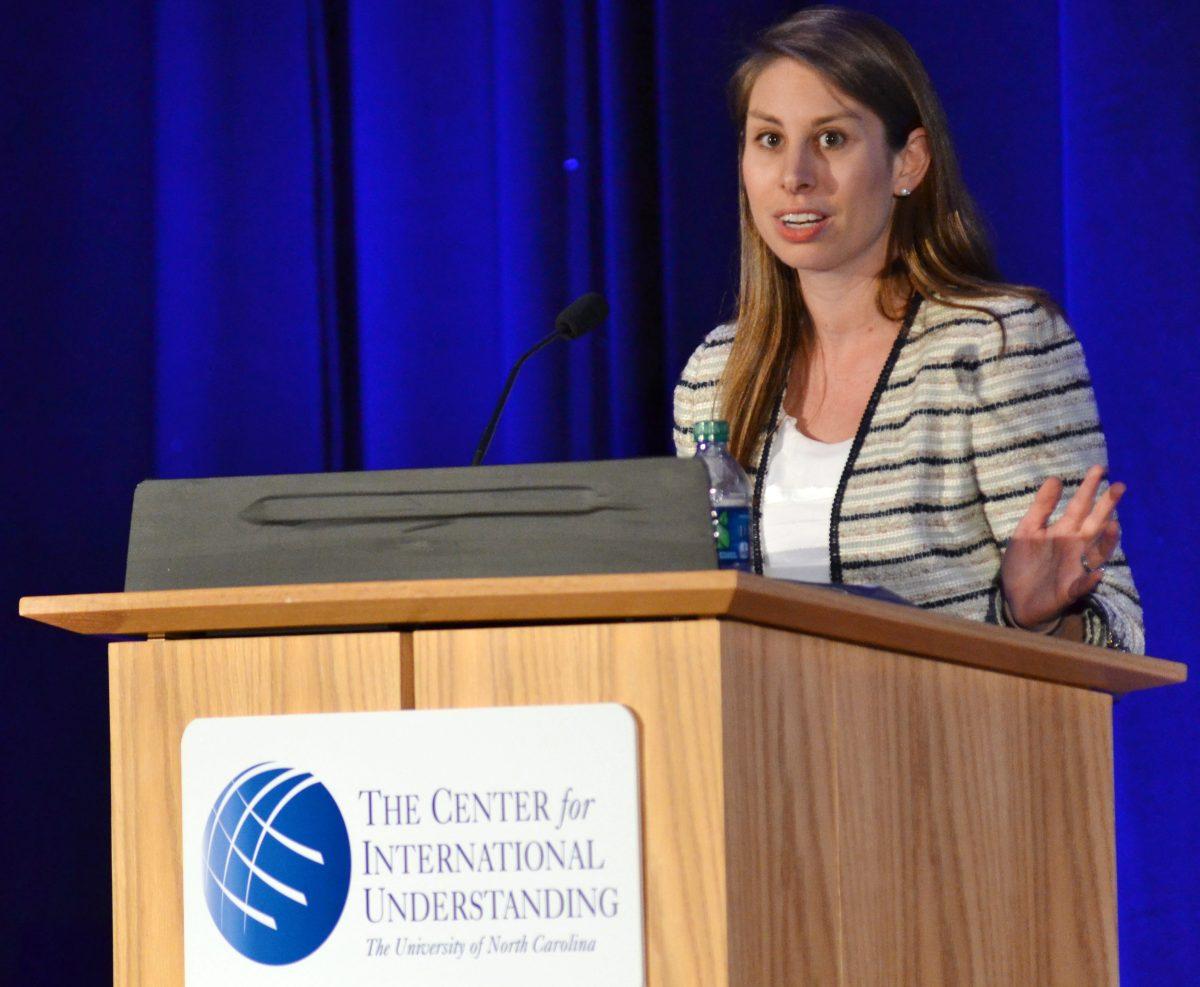The University of North Carolina’s Center for International Understanding hosted a forum titled “Immigration Matters” in the Hunt Library Thursday afternoon.
The stated goal of the forum was to educate participants about immigration reform without forcing any political agenda on them.
“It doesn’t ask people to think a certain way; it just asks them to think,” said Frank Sharry, a keynote speaker and executive director of America’s Voice, a Washington DC-based advocacy group. “It doesn’t ask them to move a certain way; it just encourages them to move in whichever way they’re inclined to.”
Though none of the speakers encouraged audience members to take a particular political side, they did not deny that immigration reform is a highly contested issue.
“This is an issue that generates more heat than light,” Sharry said. “It always has, and it probably always will.”
Twenty-six percent of North Carolinians hold four-year degrees, but Leslie Boney, vice president for International, Community and Economic Engagement of the UNC General Administration, said the UNC System hopes to increase the number of four-year degree holding North Carolinians to 37 percent by 2025. Without taking immigrants into account, this goal will be unattainable, Boney said.
Currently, there are 13,770 immigrants enrolled in the universities of the UNC System, and these students spend $338 million per year on their educations, said Peter Hans, chairman of the UNC Board of Governors.
There are 13,770 immigrant students in the UNC System. These students spend $338 million dollars per year on their education.
Among these immigrant students, are the DREAMERs, students who meet the general requirements of the DREAM Act.
“It’s really important that people know and see and meet young people who are American in all but paperwork who are prepared to stand up and say ‘look, I want to contribute to the country that I call my own, but I need the government to change policy so I can be formally recognized,’” Sharry said.
Last year was a turning point in the immigration reform debate, Sharry said, citing President Barack Obama’s 71 percent to 27 percent advantage over Mitt Romney in the Hispanic vote during the 2012 election. According to Sharry the DREAMERs had a lot to do with the outcome of the election.
“A group called United We Dream, which is the largest of network of Dreamer organizations across the country, really did a lot of soul searching to decide whether they would continue just to fight just for the Dream Act or for the broader community, and they’ve decided to fight for the broader community; for their parents for their older siblings and so forth,” Sharry said. “In some ways like the Student Non-Violent Coordinating Committee, SNICC, was kind of the youth arm of the Civil Rights Movement, United We Dream has become the youth arm of the Immigration Reform Movement.”








